Honorary Professors
John O'Brien
John O’Brien is Emeritus Professor of French, Durham University, and a former Director of IMEMS. He taught at the Universities of Liverpool and London before moving to Durham, and has been Visiting Professor at Paris-VII and Tours, and British Academy Exchange Fellow at the Newberry Library. He has also been visiting scholar at Oxford, Michigan, and Dartmouth. The epicentre of his research is the period of the French Wars of Religion (1562-98), and in particular the writers Michel de Montaigne (1533-92) and Estienne de La Boétie (1530-63). Among his recent publications (undertaken in collaboration with Marc Schachter) are La Première Circulation de la ‘Servitude volontaire’ en France et au-delà (Paris: Champion, 2019) and Sedition: The Spread of Controversial Literature and Ideas in France and Scotland, c. 1550-1610 (Turnhout: Brepols, 2022). Both of these projects grew out of the IMEMS’ research strand ‘French Books and their European Readers’. He recently edited a special number of the journal Early Modern French Studies devoted to La Boétie (vol. 44/1, 2022) and has just completed a monograph entitled De manuscrit en bibliothèque. Actualité historique et mouvement chez La Boétie, to be published by Éditions Classiques Garnier in 2024.
Krista Kesselring
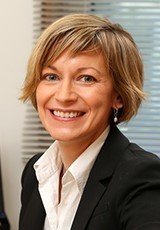 Krista Kesselring received her PhD from Queen’s University (Canada) in 2001, specializing in British history, and is now a University Research Professor at Dalhousie University. A social historian of law, she has particular interests in violence, protest, and gender. Her publications include Making Murder Public: Homicide in Early Modern England (2019), The Northern Rebellion of 1569: Faith, Politics and Protest in Elizabethan England (2007), and Mercy and Authority in the Tudor State (2003). She has also published collections of sources on the Court of Star Chamber and on the trial of Charles I, and has co-edited two essay collections: Crossing Borders: Boundaries and Margins in Medieval and Early Modern Britain (2018, with Sara M. Butler) and Married Women and the Law: Coverture in England and the Common Law World (2013, with Tim Stretton). She has held visiting fellowships at the Huntington and Folger Shakespeare libraries and, more recently, with Durham University’s Institute of Advanced Studies and IMEMS. She is currently continuing work on Star Chamber and on the history of marriage and divorce. Krista is also a series editor for Durham University IMEMS Press.
Krista Kesselring received her PhD from Queen’s University (Canada) in 2001, specializing in British history, and is now a University Research Professor at Dalhousie University. A social historian of law, she has particular interests in violence, protest, and gender. Her publications include Making Murder Public: Homicide in Early Modern England (2019), The Northern Rebellion of 1569: Faith, Politics and Protest in Elizabethan England (2007), and Mercy and Authority in the Tudor State (2003). She has also published collections of sources on the Court of Star Chamber and on the trial of Charles I, and has co-edited two essay collections: Crossing Borders: Boundaries and Margins in Medieval and Early Modern Britain (2018, with Sara M. Butler) and Married Women and the Law: Coverture in England and the Common Law World (2013, with Tim Stretton). She has held visiting fellowships at the Huntington and Folger Shakespeare libraries and, more recently, with Durham University’s Institute of Advanced Studies and IMEMS. She is currently continuing work on Star Chamber and on the history of marriage and divorce. Krista is also a series editor for Durham University IMEMS Press.
Tim Harris
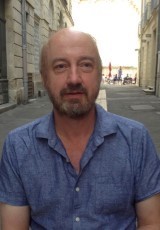 Tim Harris received his BA, MA and PhD from Cambridge University and was a Fellow of Emmanuel College from 1983 before moving to Brown University in 1986, where he is Munro-Goodwin-Wilkinson Professor in European History. A social historian of politics, he has written about the interface of high and low politics, popular protest movements, ideology and propaganda, party politics, the law and the constitution, popular culture, and the politics of religious dissent in seventeenth-century England, Scotland and Ireland. His books include London Crowds in the Reign of Charles II (1987); Politics under the Later Stuarts (1993); Restoration: Charles II and his Kingdoms (2005), Revolution: The Great Crisis of the British Monarchy, 1685-1720 (2006), and Rebellion: Britain’s First Stuart Kings (2014), while he has also edited volumes on The Politics of Religion in Restoration England 1660-1688 (1990, with Paul Seaward and Mark Goldie); Popular Culture in England, c. 1500-1850 (1995); The Politics of the Excluded, c. 1500-1850 (2001); The Entring Book of Roger Morrice, 1677-1691: Volume III: The Reign of James II, 1685-1687 (2007); The Final Crisis of the Stuart Monarchy: The Revolutions of 1688-91 in their British, Atlantic and European Contexts (2013 with Stephen Taylor); and Politics, Religion and Ideas in Seventeenth- and Eighteenth-Century Britain (2019, with Justin Champion, John Coffey, and John Marshall). He co-edits the book series Studies in Early Modern Cultural, Political and Social History for Boydell Press together with Stephen Taylor and Andy Wood of Durham. He has held long-term fellowships at the Folger Shakespeare Library, the Institute for Advanced Study in Princeton, and at the Huntington Library, and been a visiting fellow at Wolfson College Oxford, Merton College Oxford, and Trinity College Dublin. He is currently working on a book on Britain’s Century of Revolutions for Oxford University Press and also engaged in a study of ‘National Stereotyping and Religious Prejudice in Early Modern England’.
Tim Harris received his BA, MA and PhD from Cambridge University and was a Fellow of Emmanuel College from 1983 before moving to Brown University in 1986, where he is Munro-Goodwin-Wilkinson Professor in European History. A social historian of politics, he has written about the interface of high and low politics, popular protest movements, ideology and propaganda, party politics, the law and the constitution, popular culture, and the politics of religious dissent in seventeenth-century England, Scotland and Ireland. His books include London Crowds in the Reign of Charles II (1987); Politics under the Later Stuarts (1993); Restoration: Charles II and his Kingdoms (2005), Revolution: The Great Crisis of the British Monarchy, 1685-1720 (2006), and Rebellion: Britain’s First Stuart Kings (2014), while he has also edited volumes on The Politics of Religion in Restoration England 1660-1688 (1990, with Paul Seaward and Mark Goldie); Popular Culture in England, c. 1500-1850 (1995); The Politics of the Excluded, c. 1500-1850 (2001); The Entring Book of Roger Morrice, 1677-1691: Volume III: The Reign of James II, 1685-1687 (2007); The Final Crisis of the Stuart Monarchy: The Revolutions of 1688-91 in their British, Atlantic and European Contexts (2013 with Stephen Taylor); and Politics, Religion and Ideas in Seventeenth- and Eighteenth-Century Britain (2019, with Justin Champion, John Coffey, and John Marshall). He co-edits the book series Studies in Early Modern Cultural, Political and Social History for Boydell Press together with Stephen Taylor and Andy Wood of Durham. He has held long-term fellowships at the Folger Shakespeare Library, the Institute for Advanced Study in Princeton, and at the Huntington Library, and been a visiting fellow at Wolfson College Oxford, Merton College Oxford, and Trinity College Dublin. He is currently working on a book on Britain’s Century of Revolutions for Oxford University Press and also engaged in a study of ‘National Stereotyping and Religious Prejudice in Early Modern England’.
Robert G. Ingram
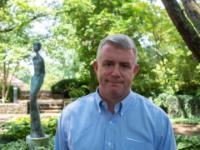 Robert G. Ingram is Professor of Humanities and associate director of the Hamilton Center at the University of Florida. An historian of early modern British religious, political and intellectual history, has written two books and edited five others. His latest book is Reformation without End: Religion, Politics and the Past in Post-Revolutionary England (2018), while he has also recently co-edited People Power: Popular Sovereignty from Machiavelli to Modernity (2022) and Freedom of Speech, 1500–1850 (2020). With Jeffrey Collins, Raffaella Santi, Shannon Stimson and Samuel Garett Zeitlin, he edits a new book on intellectual history called Ideas and Practices, 1300–1850 (Durham University IMEMS Press). He is currently writing a book on the state’s sacralization in post-revolutionary Britain and, with Stephen Taylor and Hannah Smith, is producing a scholarly edition of the memoirs and correspondence of the Whig politician John Lord Hervey, which will be published by Oxford University Press. Robert is also a series editor for Durham University IMEMS Press.
Robert G. Ingram is Professor of Humanities and associate director of the Hamilton Center at the University of Florida. An historian of early modern British religious, political and intellectual history, has written two books and edited five others. His latest book is Reformation without End: Religion, Politics and the Past in Post-Revolutionary England (2018), while he has also recently co-edited People Power: Popular Sovereignty from Machiavelli to Modernity (2022) and Freedom of Speech, 1500–1850 (2020). With Jeffrey Collins, Raffaella Santi, Shannon Stimson and Samuel Garett Zeitlin, he edits a new book on intellectual history called Ideas and Practices, 1300–1850 (Durham University IMEMS Press). He is currently writing a book on the state’s sacralization in post-revolutionary Britain and, with Stephen Taylor and Hannah Smith, is producing a scholarly edition of the memoirs and correspondence of the Whig politician John Lord Hervey, which will be published by Oxford University Press. Robert is also a series editor for Durham University IMEMS Press.
Anne Thayer
Dr. Anne T. Thayer is the Diefenderfer Professor of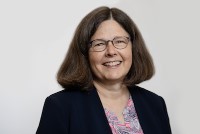 Mercersburg and Ecumenical Theology and Professor of Church History at Lancaster Theological Seminary (Lancaster, Pennsylvania), where she also directs the Doctor of Ministry program. She received a PhD in Religion from Harvard University in 1996. She currently serves as the President of the International Medieval Sermon Studies Society. As an historian, Anne is particularly interested in late medieval and early modern Christianity, the history of preaching and pastoral care, and the popular communication of religious ideas. She is best known for Penitence, Preaching, and the Coming of the Reformation, a survey of late medieval printed model sermon collections and their function in preparing for the varying responses to Luther’s claim of justification by grace alone. Anne’s current research examines the marginalia of Thomas Swalwell, OSB, monk of Durham (d. 1539). Swalwell’s many annotated books, many of which are still in Durham, are windows onto the life and work of a dedicated monk on the eve of the English Reformation. They reveal his lifelong scholarly studies, concern for the integrity of the clergy, diligence in administrative duties, and response to the impending religious changes.
Mercersburg and Ecumenical Theology and Professor of Church History at Lancaster Theological Seminary (Lancaster, Pennsylvania), where she also directs the Doctor of Ministry program. She received a PhD in Religion from Harvard University in 1996. She currently serves as the President of the International Medieval Sermon Studies Society. As an historian, Anne is particularly interested in late medieval and early modern Christianity, the history of preaching and pastoral care, and the popular communication of religious ideas. She is best known for Penitence, Preaching, and the Coming of the Reformation, a survey of late medieval printed model sermon collections and their function in preparing for the varying responses to Luther’s claim of justification by grace alone. Anne’s current research examines the marginalia of Thomas Swalwell, OSB, monk of Durham (d. 1539). Swalwell’s many annotated books, many of which are still in Durham, are windows onto the life and work of a dedicated monk on the eve of the English Reformation. They reveal his lifelong scholarly studies, concern for the integrity of the clergy, diligence in administrative duties, and response to the impending religious changes.
Honorary Fellows
Joanna Barker
Joanna is an alumna of Durham University, ![]() graduating with first class honours in French in 1981. She received an honorary Doctor of Letters degree from Durham University in 2012. She has maintained her links with Durham and is well known to the University as a benefactor. She also sponsored three IMEMS research strands and her generosity was instrumental in setting up the IMEMS Library Fellowship scheme. Joanna's research concentrates on early modern France, notably women's writing. She is a trustee of Elizabeth Montagu Correspondence Online. Joanna has had a 35-year career in international private equity, with 25 years’ experience of serving on boards of international portfolio companies and extensive experience as a charity trustee. She is founder and Trustee of Target Ovarian Cancer. Joanna was awarded an MBE in 2014 for services to people with cancer.
graduating with first class honours in French in 1981. She received an honorary Doctor of Letters degree from Durham University in 2012. She has maintained her links with Durham and is well known to the University as a benefactor. She also sponsored three IMEMS research strands and her generosity was instrumental in setting up the IMEMS Library Fellowship scheme. Joanna's research concentrates on early modern France, notably women's writing. She is a trustee of Elizabeth Montagu Correspondence Online. Joanna has had a 35-year career in international private equity, with 25 years’ experience of serving on boards of international portfolio companies and extensive experience as a charity trustee. She is founder and Trustee of Target Ovarian Cancer. Joanna was awarded an MBE in 2014 for services to people with cancer.
Marco Barducci
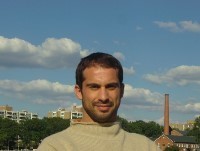
Dr Marco Barducci is interested in the impact of early modern European ideas on British intellectual and political culture. He has published a monograph Hugo Grotius and the Century of Revolution, 1613-1718 (Oxford University Press, 2017), which reconstructs how the writings of Grotius about politics, law and religion were read and used by English political and religious writers during the Century of Revolution. Marco has held a Postdoctoral Fellowship at the University of Roma Tre, as well as academic positions at Durham University’ IMEMS and Institute of Advanced Study, the Institute for Advanced Study (Princeton), the Folger Institute (Washington, DC), the Interdisciplinary Centre for European Enlightenment Studies (Halle-Wittenberg), the University of Florence and the Fondazione Luigi Firpo. (Turin). In 2021 he took up a post at the University of Pavia, Italy.
Ana de Oliveira Dias
 Ana de Oliveira Dias specialises in visual and intellectual culture in medieval Iberia and Continental Europe ca. CE 800-1050, with a strong focus on manuscript production and illumination in a monastic context. She completed a PhD in History at Durham University in 2019 and has lectured at the universities of York and Durham. Since 2019, she has acted as a programme director of the IMEMS/Durham University Palaeography and Latin School. In 2020, she joined the Institute of English Studies, University of London, as a postdoctoral research fellow in the project CULTIVATE MSS, in which she investigates the trade of early medieval manuscripts in Britain and America in the late nineteenth and early twentieth century.
Ana de Oliveira Dias specialises in visual and intellectual culture in medieval Iberia and Continental Europe ca. CE 800-1050, with a strong focus on manuscript production and illumination in a monastic context. She completed a PhD in History at Durham University in 2019 and has lectured at the universities of York and Durham. Since 2019, she has acted as a programme director of the IMEMS/Durham University Palaeography and Latin School. In 2020, she joined the Institute of English Studies, University of London, as a postdoctoral research fellow in the project CULTIVATE MSS, in which she investigates the trade of early medieval manuscripts in Britain and America in the late nineteenth and early twentieth century.
Hannah Smith
Hannah Smith is a Tutorial Fellow, St Hilda's College, Oxford and Associate Professor in Early Modern History, University of Oxford. She studied at Newnham College, Cambridge, was an RCUK Academic Fellow at the University of Hull and was awarded a Philip Leverhulme Prize in 2008. She works on Britain in the period 1660 to 1760. She has recently published Armies and Political Change in Britain, 1660-1750 (Oxford University Press, 2021) and co-edited Civilians and War in Europe, 1618-1815 with Erica Charters and Eve Rosenhaft (Liverpool University Press, 2012). She continues to pursue a research interest in the early Georgian monarchy, the subject of her first book, Georgian Monarchy: Politics and Culture, 1714-1760 (Cambridge University Press, 2006), through co-editing a new edition of Lord Hervey’s Memoirs of the Reign of King George II with Robert Ingram and Stephen Taylor. Her interest in gender history is reflected in a volume of essays, Religion and Women in Britain, 1660-1760 co-edited with Sarah Apetrei (Ashgate, 2014), and research on eighteenth-century aristocratic libertinism. She is working on a project about equestrianism in early-mid twentieth-century Britain.
Andrew Foster
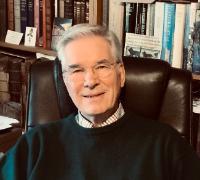 Andrew Foster, BA (Kent), DPhil (Oxford), FRHistS, FSA, FHA is an Honorary Research Fellow of the University of Kent, and a visiting researcher with ‘Lincoln Unlocked’ at Lincoln College, Oxford. Andrew has written chiefly about the early modern Church of England, its bishops and clergy, its cathedrals, parishes, and churchwardens. He is currently working on a history of the dioceses of England and Wales between 1540 and 1700, and an edition of the letters and papers of Archbishop Richard Neile for the Church of England Record Society. His DPhil thesis on Richard Neile – a one-time Bishop of Durham – was supervised by Christopher Hill. Work on Durham records now is inspired by interest in Bishop Nathaniel Crewe, his connections with Lincoln College Oxford, and the problems revealed in studying the reconstruction of the Church of England after the restoration. In his career, Andrew was a Literary Director of the Sussex Record Society for over thirty years, a Vice-President of the Royal Historical Society, and chair of the Public History Committee of the Historical Association.
Andrew Foster, BA (Kent), DPhil (Oxford), FRHistS, FSA, FHA is an Honorary Research Fellow of the University of Kent, and a visiting researcher with ‘Lincoln Unlocked’ at Lincoln College, Oxford. Andrew has written chiefly about the early modern Church of England, its bishops and clergy, its cathedrals, parishes, and churchwardens. He is currently working on a history of the dioceses of England and Wales between 1540 and 1700, and an edition of the letters and papers of Archbishop Richard Neile for the Church of England Record Society. His DPhil thesis on Richard Neile – a one-time Bishop of Durham – was supervised by Christopher Hill. Work on Durham records now is inspired by interest in Bishop Nathaniel Crewe, his connections with Lincoln College Oxford, and the problems revealed in studying the reconstruction of the Church of England after the restoration. In his career, Andrew was a Literary Director of the Sussex Record Society for over thirty years, a Vice-President of the Royal Historical Society, and chair of the Public History Committee of the Historical Association.
Freya Horsfield
 Dr Freya Horsfield is a heritage scientist and knowledge broker with extensive experience in public policy and partnership. Freya’s public service included in the Government Office for Science, supporting evidence-informed policy through strategy, policy, and governance, and substantial involvement in place-based policy and delivery roles both in NE England and UK central government. Freya’s research focusses on the complex relationships between a medieval worldview, that of the Cistercian monastic Order, and the historic environment, with an emphasis on the physical legacy of medieval activities for modern-day challenges such as flood hazard management. Freya is also a member of the Department of Archaeology at Durham University, and a Trustee of the National Heritage Science Forum, an organisation that facilitates collaboration and knowledge-exchange to enhance the contribution of heritage science to society.
Dr Freya Horsfield is a heritage scientist and knowledge broker with extensive experience in public policy and partnership. Freya’s public service included in the Government Office for Science, supporting evidence-informed policy through strategy, policy, and governance, and substantial involvement in place-based policy and delivery roles both in NE England and UK central government. Freya’s research focusses on the complex relationships between a medieval worldview, that of the Cistercian monastic Order, and the historic environment, with an emphasis on the physical legacy of medieval activities for modern-day challenges such as flood hazard management. Freya is also a member of the Department of Archaeology at Durham University, and a Trustee of the National Heritage Science Forum, an organisation that facilitates collaboration and knowledge-exchange to enhance the contribution of heritage science to society.
Andy Hook
 Originating from Cambridge, Andy read Physics & Laser Physics at Swansea University before moving to London to work for Philips as a process engineer in their image-intensifier department specialising in fibre-optics, vacuum and phosphorous coating technologies.
Originating from Cambridge, Andy read Physics & Laser Physics at Swansea University before moving to London to work for Philips as a process engineer in their image-intensifier department specialising in fibre-optics, vacuum and phosphorous coating technologies.
After completing a Diploma in Management Studies at the London Business School he moved to Newcastle to take-up a position as manufacturing manager of a facility making printed circuit boards. However, concluding that engineering and manufacturing was never likely to be part of his long-term future he jumped ship and opened what was his first of several restaurants, Sidney’s in Tynemouth on the north east coast in 1999. This was quickly followed by the opening of Blackfriars, a restaurant within a 13th century former Dominican friary in the medieval heart of Newcastle-upon-Tyne, in 2001. It is here where he developed a keen interest in the Middle Ages and the domestic lives of the mendicant order. A chance meeting with Professor Giles Gasper introduced him to the academic expertise of Durham University’s medievalists and a long-term relationship that has led to a range of collaborations between the University and Restaurant including medieval cooking workshops, talks, lecturers and online courses. In his spare time Andy is a keen allotmenteer, musician, bread-maker and sommelier. He’s a founding member of EAT! Newcastle Gateshead Food Festival, the Grainger Town Forum and board director of Fareshare North East.
Michael Stansfield
 I am an archivist whose career has taken me to Cambridge, Canterbury, Oxford, Durham and now Oxford again. I have been fortunate to develop and facilitate access to some of the major medieval institutional archives in this country, including those of the cathedrals of Canterbury and Durham, and the Oxbridge colleges of King's, Corpus Christi, Merton, and New College, not forgetting the perhaps so far less prominent medieval collection at Raby Castle. This has allowed me to enhance access through cataloguing, digitising, papers, and teaching and promoting to groups of all ages and levels of acquaintance with the medieval world.
I am an archivist whose career has taken me to Cambridge, Canterbury, Oxford, Durham and now Oxford again. I have been fortunate to develop and facilitate access to some of the major medieval institutional archives in this country, including those of the cathedrals of Canterbury and Durham, and the Oxbridge colleges of King's, Corpus Christi, Merton, and New College, not forgetting the perhaps so far less prominent medieval collection at Raby Castle. This has allowed me to enhance access through cataloguing, digitising, papers, and teaching and promoting to groups of all ages and levels of acquaintance with the medieval world.
Eric Cambridge
A graduate of St Andrews and Durham universities, Eric researches the material culture of the middle ages, especially its architecture and archaeology. His doctorate examined the building activities of the later medieval monks of Durham and their stewardship of the cathedral; more recently a growing interest in the geometry and metrology of medieval churches has led him to explore the design of the Romanesque cathedral and its liturgical arrangements. The main focus of his current research is a major collaborative project to publish an archaeology of the friaries of medieval Newcastle and to explore their impact on the development of the town. He is also contributing to an interdisciplinary reassessment of the fourteenth-century Gough Map of medieval Britain and preparing for publication his 2018 Jarrow Lecture on the diocesan structure of early medieval Northumbria. Other projects in the pipeline include a radical reappraisal of the architectural development of the famous Carolingian abbey church of Saint-Riquier in Picardy. A subsidiary enthusiasm is British nineteenth-century architecture. His research in this area includes the genesis of John Dobson’s design for Newcastle Central Station and the later churches of J. L. Pearson, a leading gothic revival architect who spent his formative years in Durham. He also currently serves on the Council of the British Archaeological Association and chairs the Friends of the World of Bede.


/prod01/prodbucket01/media/durham-university/research-/research-institutes/institute-of-medieval-and-early-modern-studies/23358-1.jpg)